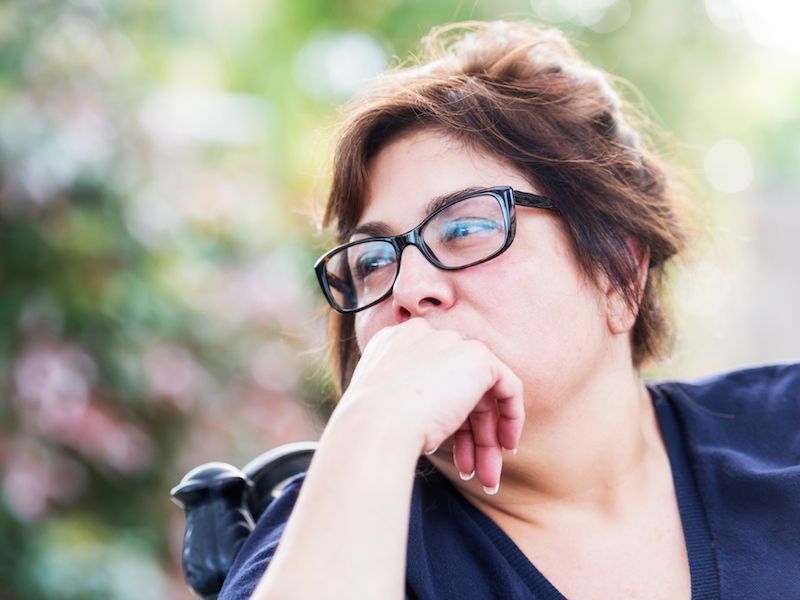
Studies show that you are twice as likely to have hearing loss if you have diabetes, according to the American Diabetes Association. That may surprise those of you who immediately associate hearing loss with growing old or noise damage. Nearly 500,000 of the1.9 million people diagnosed with diabetes in 2010 were under the age of 44. Some kind of hearing loss most likely impacts at least 250,000 of the younger people with this disease.
The point is that diabetes is just one in many ailments which can cost a person their hearing. Besides the obvious factor of the aging process, what is the connection between these illnesses and hearing loss? Consider some illnesses that can lead to loss of hearing.
Diabetes
What the link is between diabetes and hearing loss is unclear but clinical research appears to indicate there is one. People who have prediabetes, a condition that indicates they might develop type 2 diabetes, tend to lose their hearing 30 percent faster than those with normal blood sugar levels.
While there are some theories, scientists still don’t understand why this happens. It is feasible that harm to the blood vessels that feed the inner ear might be caused by high glucose levels. That’s a realistic assumption since diabetes is known to influence circulation.
Meningitis
This infectious disease causes hearing loss. Meningitis by definition is inflammation of the membranes that cover the spinal cord and brain, commonly due to infection. Studies show that 30 percent of people who develop this condition will also lose their hearing, either in part or in full. Among the American youth, this infection is the second leading cause of hearing loss.
The delicate nerves that send signals to the inner ear are potentially injured by meningitis. The brain has no means to interpret sound if it doesn’t get these signals.
Cardiovascular Disease
Cardiovascular disease is an umbrella name that relates to ailments that impact the heart or blood vessels. Some normal diseases in this category include:
- Heart attack
- Stroke
- Heart failure
- Atherosclerosis
- Peripheral artery disease
- High blood pressure
Commonly, cardiovascular diseases have a tendency to be linked to age-related hearing loss. Injury can easily happen to the inner ear. When there is a change in blood flow, it might not get the oxygen and nutrients it needs to thrive, and injury to the inner ear then leads to hearing loss.
Chronic Kidney Disease
A 2012 study published in The Laryngoscope found that people with this condition also had an increased risk of hearing loss. A separate study found that chance to be as high as 43 percent. However, this connection might be a coincidence. Kidney disease and other conditions associated with high blood pressure or diabetes have lots of the same risk factors.
Another hypothesis is that the toxins that build-up in the blood as a result of kidney failure may be to blame. The connection that the nerves have with the brain may be closed off due to damage to the ear by these toxins.
Dementia
The link between loss of hearing and dementia is a two-way street. A person’s chances of getting Alzheimer’s disease appears to be increased by cognitive deterioration. Brain shrinkage and atrophy are the causes of dementia. That process is accelerated by hearing loss.
It also works the other way around. Somebody who develops dementia even though there is normal hearing will show a decline in their hearing as injury to the brain increases.
Mumps
Mumps is a viral infection which can cause children to lose their hearing when they’re very young. Hearing loss may affect both ears or only one side. The reason this occurs is the virus damages the cochlea in the inner ear. It’s the component of the ear that sends signals to the brain. The good news is mumps is pretty scarce these days due to vaccinations. Not everyone will suffer from hearing loss if they get the mumps.
Chronic Ear Infections
Treatment gets rid of the occasional ear infection so it’s not very risky for most people. For some, however, infection after infection take a toll on the tiny pieces that are needed for hearing such as the eardrum or the small bones in the middle ear. When sound cannot get to the inner ear with enough strength to send messages to the brain it’s known as conductive hearing loss. Sensorineural hearing loss or nerve damage can also be caused by infections.
Many of the diseases that can cause hearing loss can be avoided by prevention. A healthy diet, plenty of exercise and regular sleep habits will go a long way to protecting your ear health throughout your life. You should also get regular hearing exams to make sure your ears stay healthy.
